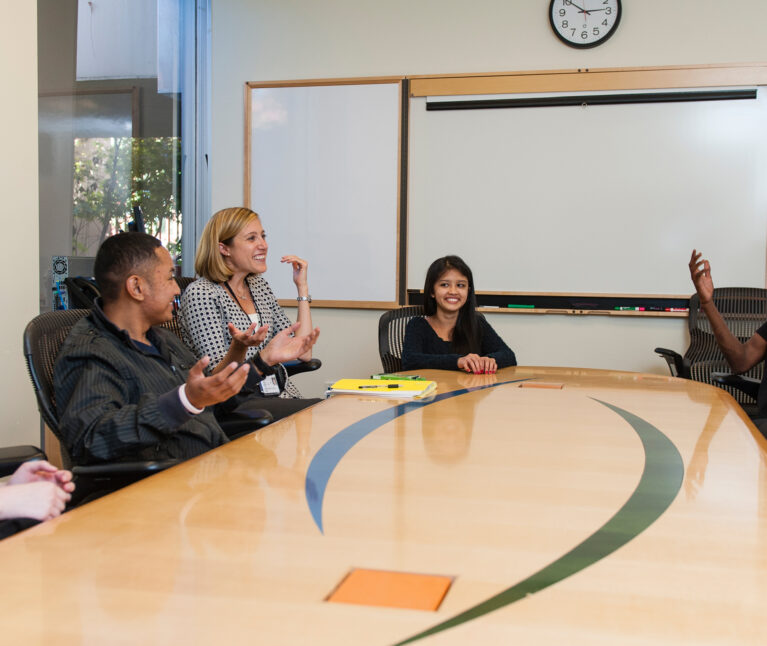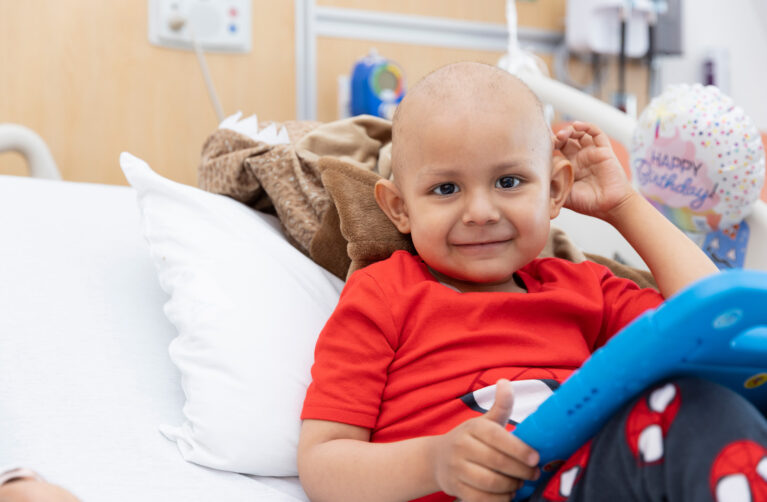Meet LaJay
LaJay Phillips has a fan club at the Teen Liver Transplant Transitioning Clinic, and it’s easy to see why. Now 20 years old, LaJay is one of the clinic’s success stories and serves as an example for younger teens as they walk the path he took not long ago.
As an infant, LaJay was diagnosed with biliary atresia, a congenital condition in which the bile duct between the liver and the small intestine is blocked or absent. At age 2, he underwent a liver transplant at Packard Children’s.
On top of dealing with health issues, LaJay encountered more than his share of upheaval: multiple foster families, moves between Oakland, Hayward, and Tracy, and separation from his three siblings.
As he grew up through all of the change, LaJay took on the responsibility of managing his health to ensure that his body wouldn’t reject his new liver. He maintains a strict regimen of medications and makes periodic trips back to Packard Children’s for check-ups.
To help adolescents like LaJay navigate the passage from pediatric patient to independent adult, Packard Children’s created the Teen Liver Transplant Transitioning Clinic in 2007, the first clinic of its kind. Today, teens and their families have the opportunity to gather six times a year to learn about the unique needs of transplant recipients.
Teens Will be Teens
The vast majority of children and adolescents who have received transplants are well adjusted, says Lauren Mikula Schneider, PsyD, a clinical instructor of child and adolescent psychiatry. However, some struggle with adjusting to the changes brought about by transplant, such as feeling different from their peers, having to take medications on a strict schedule, side effects from medications that change their physical appearance, or activity restrictions.
For many of the transplant recipients, this is already a tumultuous time. Some go through rebellious stages and may skip their medication or doctors’ appointments. But the clinic team never gives up. Over time, many patients have an “ah ha” moment.
William Berquist, MD, medical director of the pediatric liver transplant program and co-founder of the clinic, enjoys seeing patients increase their independence, supported by their participation in the Teen Transitioning Clinic.
“Some teens take a passive approach to their health, but the clinic motivates them to become more active,” Berquist says. “Because they’re teens and still developing who they are, they can change direction based on what they learn from us and from each other. It’s rewarding to see the light bulb go on when they make a decision to take responsibility for their health.”
After their one-on-one doctors’ appointments, the teens gather as a group with a child psychologist and a postdoctoral fellow to discuss topics such as becoming independent from their parents, or issues related to living with a transplanted organ. LaJay’s enthusiasm is infectious. A participant in the clinic from its inception, he quickly breaks the ice with the other teens, creating an environment for learning and sharing.
“When I’m at the clinic I get to see old friends, spread knowledge, and share my story,” LaJay says. “You can always learn from others and their mistakes.”
Leaving the Nest
While the teens meet, a group of parents and caregivers gather separately for support and education about the transition process. Parent mentor Michele Ashland describes how she just dropped her daughter, Miranda, off at college in San Luis Obispo, but not before she made sure Miranda had connected with doctors who could help her monitor her health now that she’s on her own.
“One difference that patients and their parents need to be prepared for is the way their doctors communicate with them,” says Marcia Castillo, RN, BSN, CCTC, a pediatric liver transplant coordinator who co-founded the clinic with Berquist. “While children are being treated in pediatric medicine, doctors communicate with patients and parents as a family. When patients transition to adult medicine, they are treated as individuals who are fully responsible for their own care.”
Since the clinic began, organizers say they have seen improvement in patients’ adherence to medication, fewer long-term complications and rejections, and more self-awareness regarding issues such as drugs, body image, and relationships.
“We’ve learned that the sooner teens start preparing for that transition, the more successful they are when it comes time to move to adult medicine,” Castillo says.
Schneider adds that a preliminary survey of the teens shows that 62 percent of them are currently managing their medications and appointments without the help of a parent.
“Our goal is to increase that number and encourage the teens to be more independent in managing their medical care,” Schneider says. “It is my hope that in Teen Clinic, patients obtain strategies to help them balance taking care of their health with getting out and enjoying life.”
This September marked LaJay’s “graduation” from the Teen Clinic as he moves on to Stanford’s adult transplant clinic.
He shares with the team his dreams of going to school to learn about real estate. His fan club of doctors and nurses wishes him well, and sends a parting message: “Stay in school!”
This article appeared in the Lucile Packard Children’s News publication in Fall 2013.



